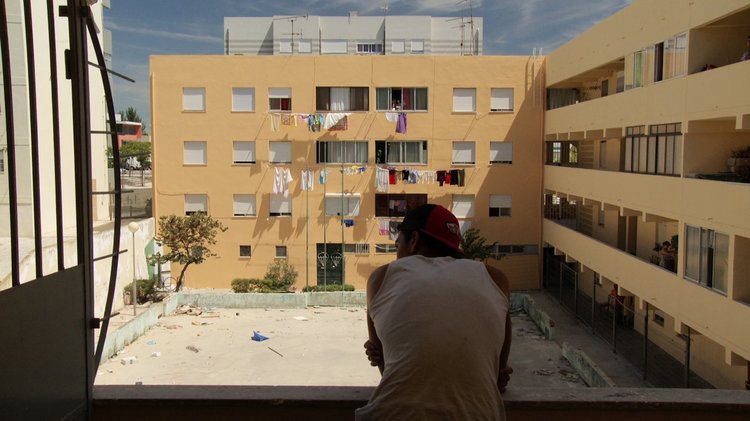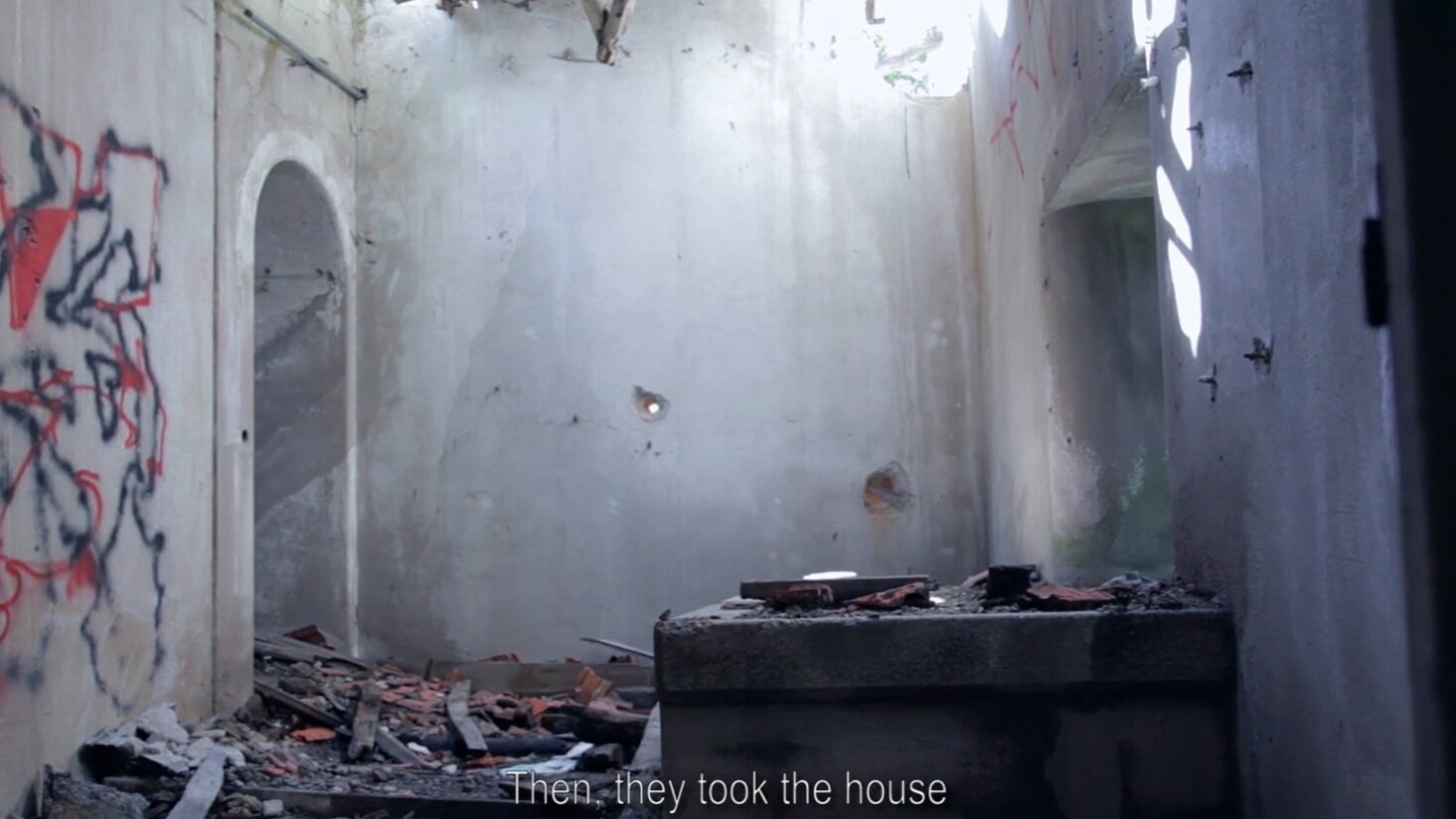Review by Luís Mendonça
“In that year the Board ordered the cutting of more than forty-six thousand windows in interior rooms, chiefly for ventilation – for little or no light was to be had from the dark hallways. Air-shafts were unknown.” (in How the Other Half Lives by Jacob Riis). Without light, without air and with that stinky smell of death that impregnates the skin of the image, everything seems to be “underground” in the photographs by Jacob Riis. Therefore the raccord between them and the first shots of Cavalo Dinheiro couldn’t be better: Ventura walking in the company of a nurse in some catacombs with little light.
Cavalo Dinheiro is the darkest and most cavernous film by Pedro Costa – but there is also this golden colour that reminds me of some recent films by Manoel de Oliveira, O Gebo e a Sombra (Gebo and the Shadow, 2012), Jean-Claude Brisseau’s La fille de nulle part (The Girl From Nowhere, 2012) and James Gray’s The Immigrant (2013).
In Pedro Costa’s film, the concept of “underground” returns to its original definition coined by American film critic Manny Farber: “B cinema” that takes place in a simultaneously literal and metaphorical cave, i.e., in the depths of a dominant modus vivendi/operandi. Perhaps we can find in Pedro Costa’s taste for confinement the marginal place that he shares, as the “outsider” that he is, with his own actors – thus, the love and respect that Pedro Costa has for his actors. At the same time, this question of “having a home” is as problematic one for Ventura as it is for Pedro Costa inside his own cinema.
In his first film, O Sangue (Blood, 1989), Pedro Costa confined and, consequently, exorcised, like Ventura inside the elevator, the ghost of cinema, against whom he will fight pointing to another sort of confinement that reaches its zenith in No Quarto da Vanda (In Vanda’s Room, 2000). After Juventude em Marcha (Colossal Youth, 2006) and O Nosso Homem (Our Man, 2010), Ventura in Cavalo Dinheiro accepts the loss of his home in the neighbourhood of Fontaínhas, built with his own bare hands, and of the hope to return to Cape Verde. So he says to the soldier from the Carnation Revolution that he is dying. Pedro Costa doesn’t let him die, he plugs him to this emotional machine called Cinema. He returns to it, like the prodigal son, twenty years after O Sangue in order to perform new rituals of cinematic exhumation. These rituals lead him to the underground paths of the B pictures directed by Fritz Lang or produced by Val Lewton.
Cavalo Dinheiro is a kind of “cinema’s film” that teaches the Carnation Revolution with tremors – we don’t know if Ventura shakes his hand because of the disease or, still, because of the fear that haunts him since the revolution.
The revolution brought light, the photographic “flash”, to some, but to the other half it gave the shadow of doubt, uncertainty and, even more, pure and simple terror. In this “other half”, like in a Jacob Riis’ photograph, lives someone tough: our man, monsieur Ventura.












































